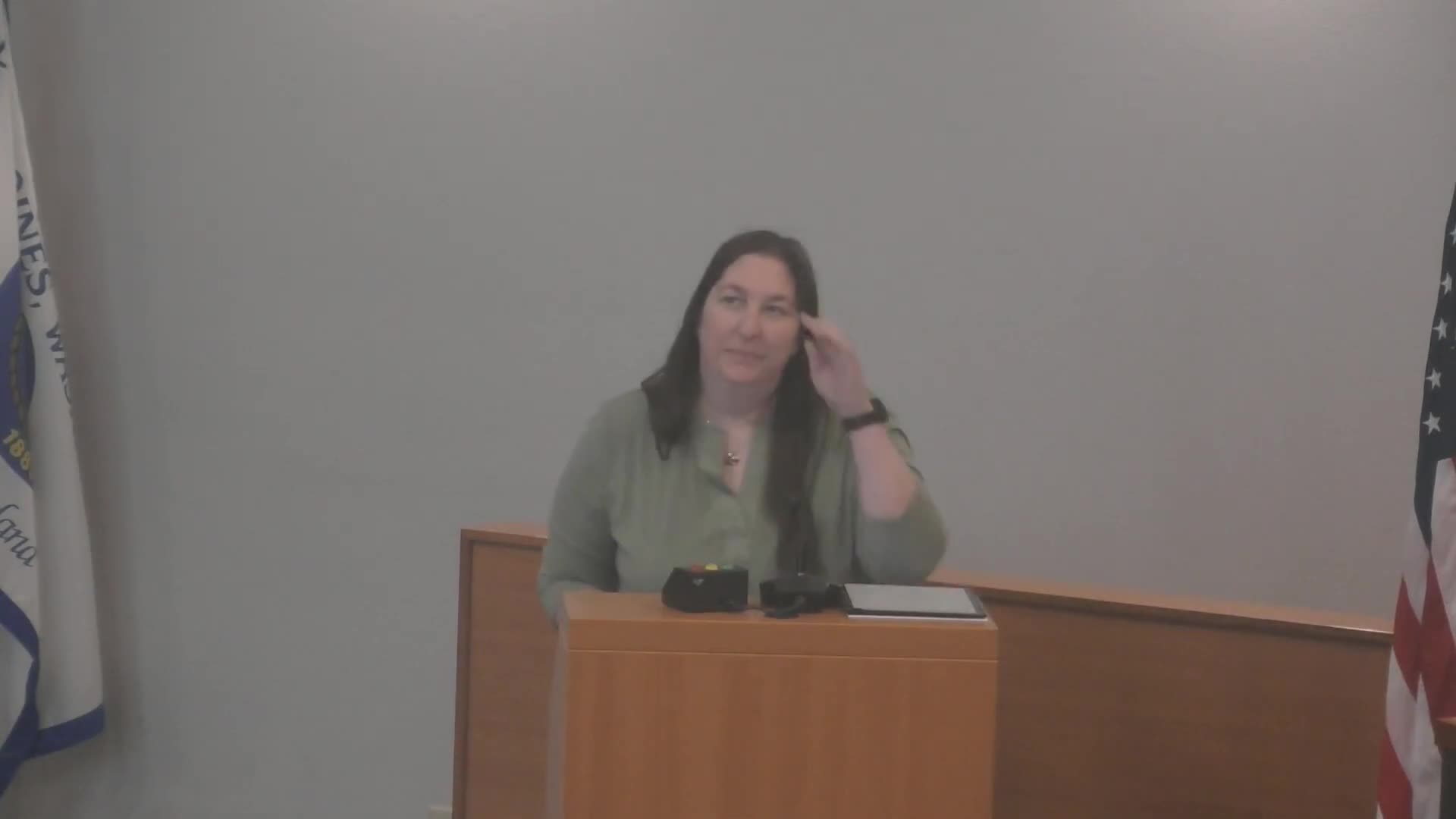Des Moines staff outline state‑required and local code amendments to reach council in 2026
Get AI-powered insights, summaries, and transcripts
Subscribe
Summary
Rebecca Deming, the city’s community development director, briefed the Committee of the Whole on a package of municipal code amendments the city will bring to public hearing through late 2025 and into 2026.
Rebecca Deming, the city’s community development director, briefed the committee Nov. 6 on a slate of municipal code amendments staff plan to bring forward by public hearing late this year and into 2026. The items include a mix of state‑mandated changes and locally proposed technical updates.
What staff presented - Application abandonment: a proposed municipal code change would allow an application to expire 180 days after staff requests corrections, so long‑dormant land‑use applications would terminate unless applicants respond. Deming said the 180‑day period aligns with the majority of peer jurisdictions; councilmembers asked whether a shorter timeframe or ongoing placard updates might improve clarity for neighbors. - Co‑living housing: a state‑required code to allow residential sleeping units (sometimes called residential suites — lockable sleeping units with shared kitchen or bathrooms) in areas that permit six or more dwelling units; staff proposed treating each sleeping unit as one‑quarter of a standard dwelling unit for parking and density purposes. - Religious property housing: provisions that would allow certain density bonuses and standards for housing on property owned by religious institutions; Deming said that item will be pushed to January 2026 for additional detail, including rules governing encampments and health/safety limits. - Lot splitting (SB 1096): staff plan to implement the state rule that allows a parent lot to be split into two lots through an administrative process similar to a lot‑line adjustment without a full short‑plat review. - Unit lot subdivision: a process allowing individual ownership of a building and the land under it (similar to, but distinct from, condominiums) while treating the parent lot as meeting underlying yard/setback zoning; staff described administrative review with noticing requirements. - Conversion of existing buildings: a state code that allows conversion of vacant commercial buildings to residential at up to 50% greater density and without additional parking requirements; staff said they will bring a local implementation back in January. - Critical areas, tree mitigation, sound code and vacant commercial registration: staff said updates are in research or development to come in 2026; the vacant commercial item would include registration and inspection rules for boarded properties.
Why it matters Several items respond to new state law and will change local permitting and development outcomes, with implications for housing supply, parking demand and neighborhood notification. Deming told council that conversion allowances and unit lot subdivisions are intended to increase housing options and allow property owners more flexibility while maintaining building‑code and ADA requirements.
Council questions and staff clarifications Councilmembers pressed staff on the 180‑day abandonment period and whether placards could be updated to reflect status; Deming said 180 days is common in peer cities but the period is at the council’s discretion and staff can explore placard status updates. Members also raised parking and service‑provision concerns for co‑living units and requested a comparison between current rules and proposed changes for religious property housing and co‑living before a public hearing.
Next steps Staff will return to council with draft code language and details at public hearings (some items in late 2025; several — religious property housing and conversions — in January 2026), and will include comparative analyses and clearer drafts of parking and density implications as requested by council.
Speakers quoted or referenced in this article appear in the meeting transcript and include Rebecca Deming (community development director) and councilmembers who asked clarifying questions.
